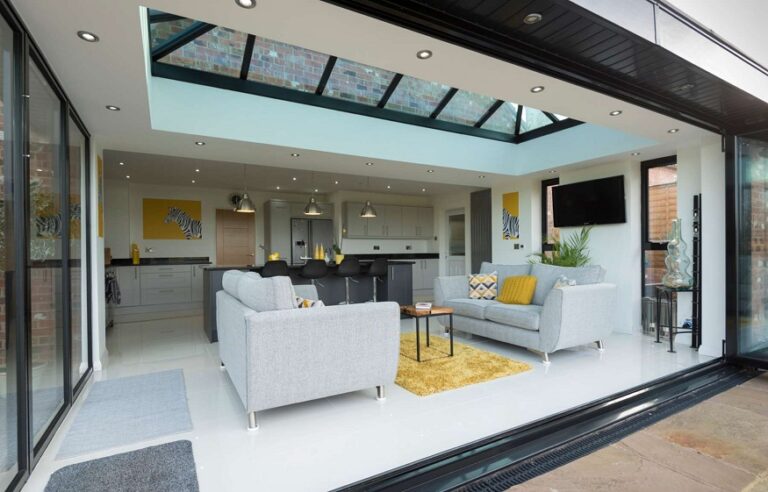
Lack of space in your home? A house extension is an ideal solution for gaining space without having to move . Whether you’re adding a bedroom for the little one, creating an office for teleworking, or simply expanding your living space, building an extension isn’t something you can’t imagine. Beyond careful planning, it’s also necessary to have a suitable budget . We’re taking a look at the key elements to remember to help you best assess the price of your house extension project .
What types of house extensions are possible?
Before looking at the price, remember that there are several types of house extensions , depending on the configuration of your home, but also your needs. Here are some examples.
Lateral extension
It’s a popular option for households with ample space around their property.
Extension by raising
If you have a small plot, a floor extension involves adding an extra story to your home. This requires a structural assessment to ensure the foundations can support the additional weight.
Please note that this project must include the cost of roof renovation in addition to adding a foundation or even reinforcing the existing structure.
Adding a veranda
A conservatory is a simpler and often less expensive option for extending a home. This glass extension brings in natural light and can be used as an additional living space, a conservatory, or a dining room.
Generally more economical, the price of this house extension nevertheless depends on the materials used and the quality of the thermal insulation.
Modular extension
Prefabricated modular extensions are becoming increasingly popular. They can also be customized to suit your tastes and needs.
Please note that you can also choose to convert your attic or garage into living space. Although this is not strictly an extension, these modifications allow you to gain living space .
How to calculate the cost of a house extension?
Many factors come into play when calculating the average price of a home extension . To avoid unpleasant surprises, here are the elements to consider in your budget:
Extension size and type
Please note that these price ranges may vary depending on the specifics of the project, particularly the type of extension. A side extension or elevation project, for example, is more expensive than a veranda.
The same applies if you want a high-ceilinged, cathedral-style extension. In this case, the cost of your extension project estimate will necessarily be higher.
Materials used
High-quality or specialized materials, such as solid wood or reinforced glass, can increase the cost. Conversely, opting for basic materials is more economical , such as a concrete block extension with PVC windows.
However, this can affect the final aesthetic appearance and value of your property. Therefore, it is important to choose the best compromise between durability, thermal and acoustic performance, quality, and aesthetics.
Complexity of the work
Projects requiring major structural modifications or complex technical installations are necessarily more expensive. Depending on the configuration of the land (slope, nearby water), it may be necessary to plan specific foundation solutions (semi-deep or deep). This is why it is important to plan an initial assessment to anticipate these costs, which includes the feasibility study .



